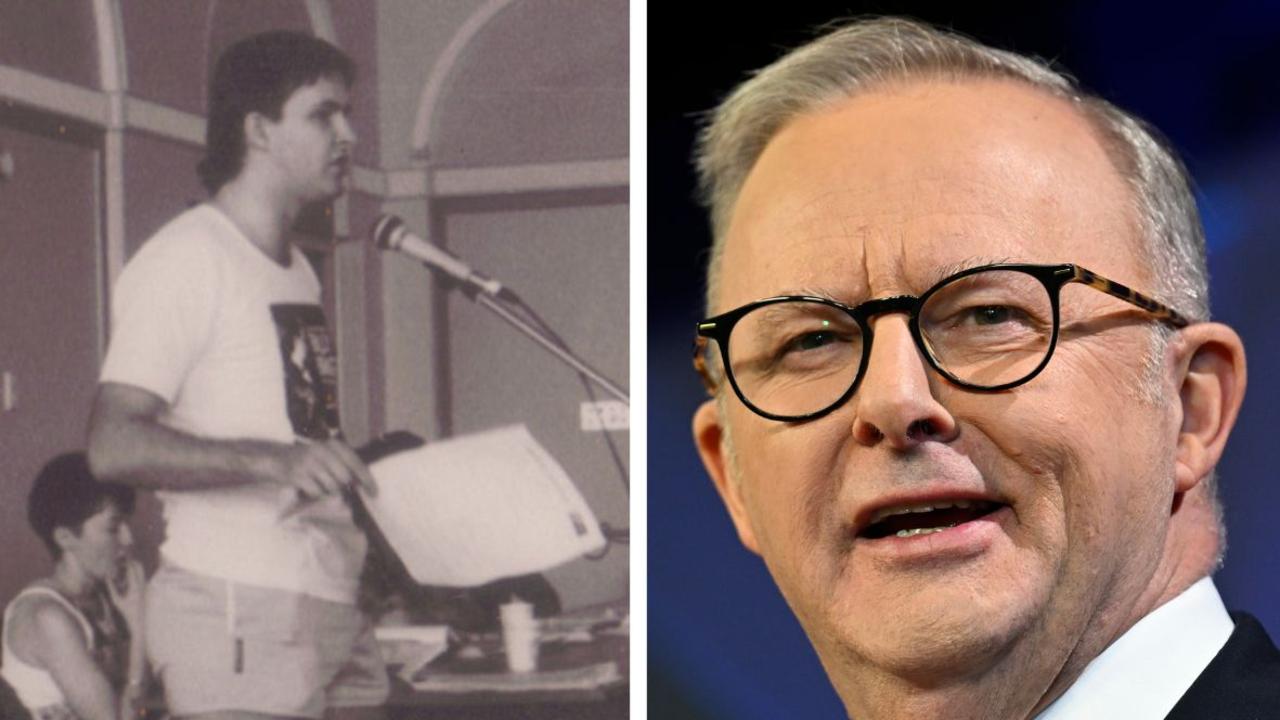Indigenous leaders have lashed out at Peter Dutton’s ‘betrayal’ of Australia with Voice decision
Another Indigenous leader has lashed out at Peter Dutton, as the fallout from the Liberal Party’s decision on the Voice referendum continues.
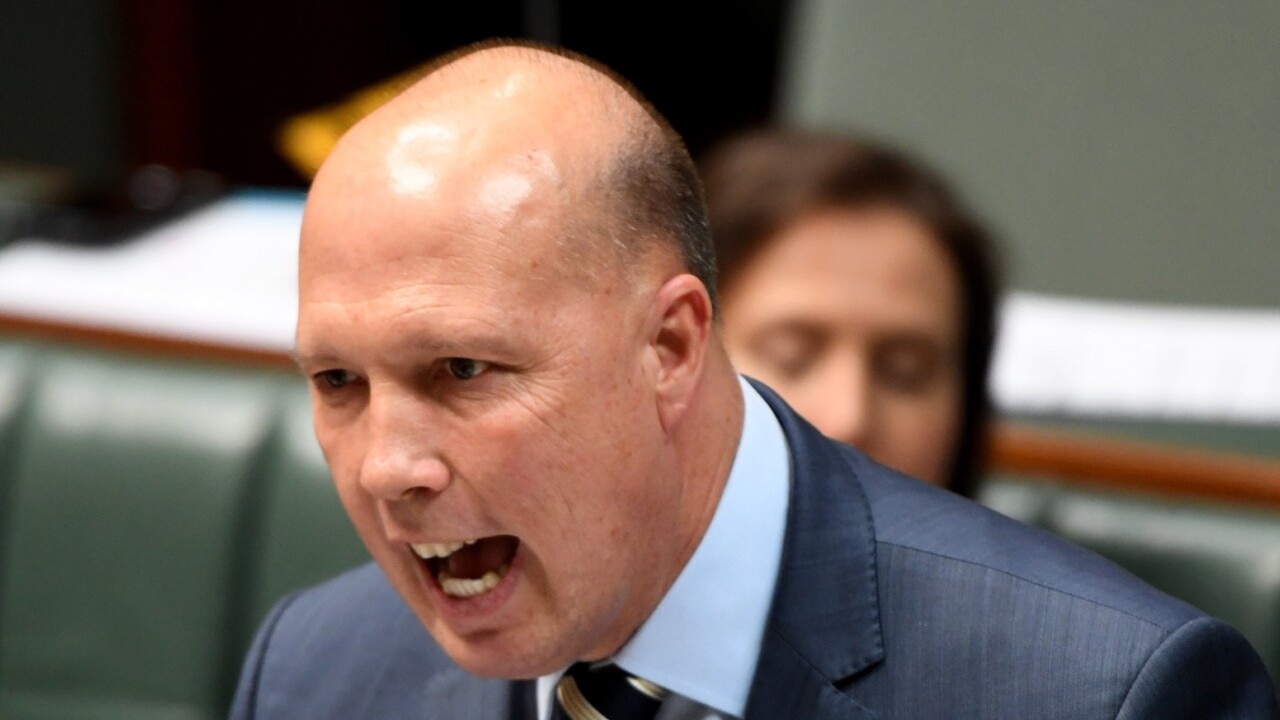
Another senior Indigenous leader has joined Noel Pearson in angry condemnation of Peter Dutton and the Liberal Party over the decision to oppose the Voice to parliament.
Mr Pearson lashed the move as a “Judas betrayal” and accused the Opposition Leader of taking on the role of an “undertaker preparing the grave to bury” the Uluru Statement signed by 250 Aboriginal and Torres Strait Islander leaders in 2017.
Marcia Langton accused Mr Dutton of deceit and deliberately misleading debate on the referendum, particularly his characterisation of it as a Canberra Voice.
“He couldn’t be further from the truth and I deeply resent that deceitful opinion that he’s expressed,” she told ABC TV’s 7.30 program.
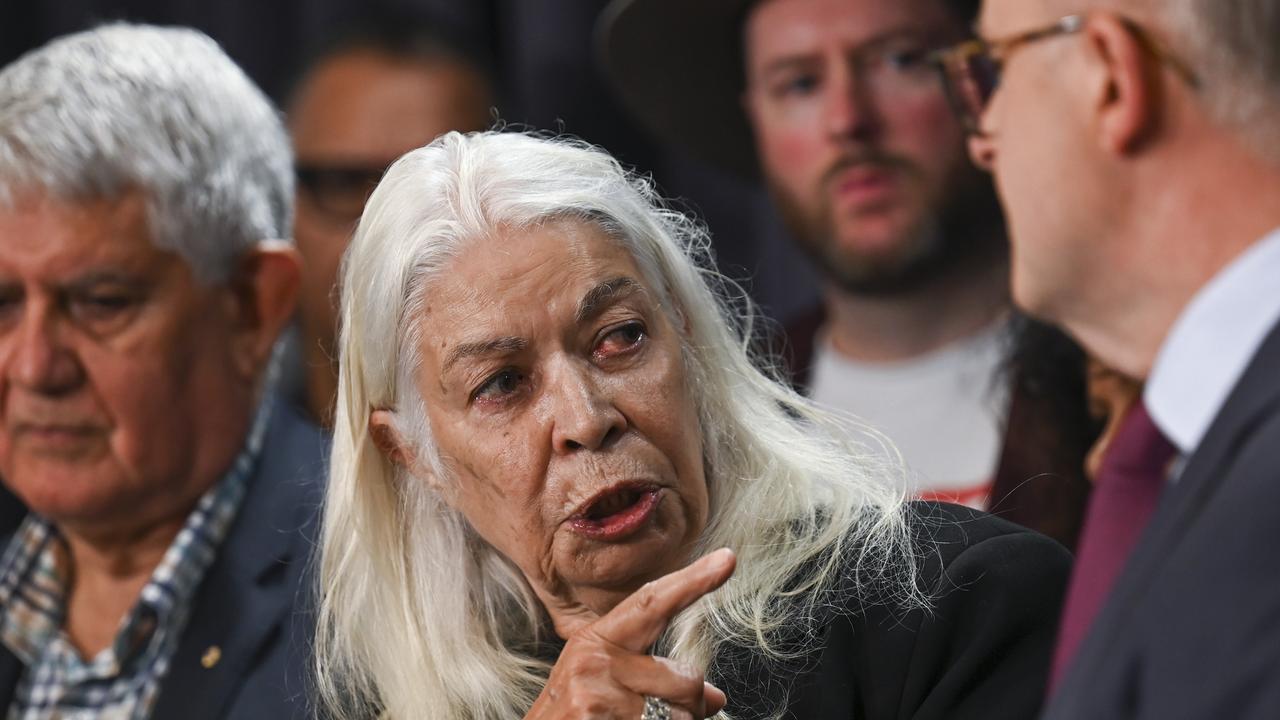
Professor Langton said she did not think Mr Dutton “was capable” of ever helping the referendum to pass.
“I think his opposition to the Voice relies absolutely on deceit and misrepresentations and, I have to say, a great deal of ignorance,” she said.
“He wants to sow confusion and doubt so that the undecided people and the people who were wavering because they’re starting to think, “Yeah, I haven’t seen any detail” ... that he‘s able to swing them to a “no” vote.”
However, she said she believed the referendum could still succeed.
The Yes campaign was dealt a further blow when later on Thursday, Labor senator Patrick Dodson – the government’s reconciliation envoy – announced he needed to take an extended period of time off work to undergo medical treatment.
“I regret that my work commitments, especially travel, will now be limited,” he said.
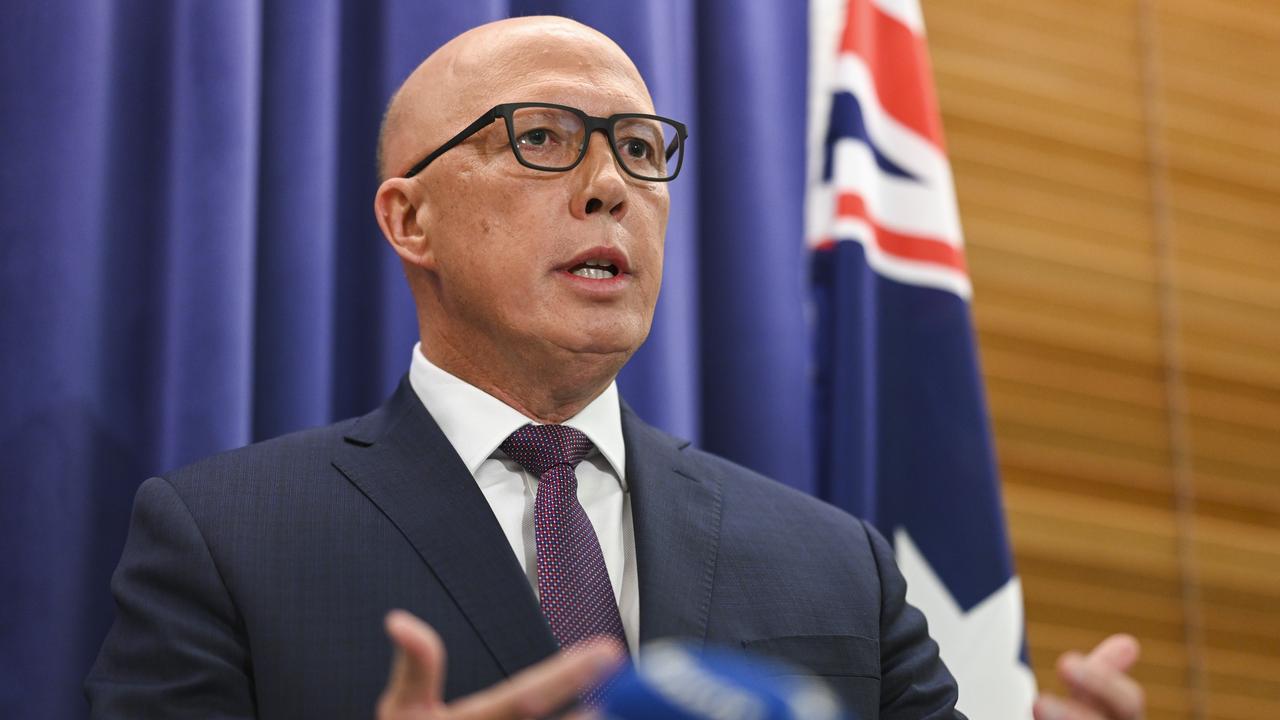
The Uluru statement called for a representative First Nations body or “Voice” to be enshrined in the Constitution to advise politicians — which the federal Liberal party room voted on Wednesday to oppose.
After the two-hour meeting with his MPs, Mr Dutton said the party had decided to support symbolic constitutional recognition but could not support a what he claimed would be a “Canberra Voice”.
Mr Dutton, who will hold frontbenchers to the party’s agreed position, instead backed the establishment of local and regional Voices that would be legislated but not embedded in the constitution.
On Thursday morning, Mr Pearson condemned the decision, saying he had spent a sleepless night “troubled by dreams and the spectre of the Dutton Liberal Party’s Judas betrayal of our country”.
“It is kind of symbolic that on the day of Passover, leading into Easter, that we should be betrayed like this, and the country should be betrayed like this,” Mr Pearson told ABC Radio.
“But, as I say to my people, when they go low, we’re going to go high. We have to appeal to our fellow Australians.”
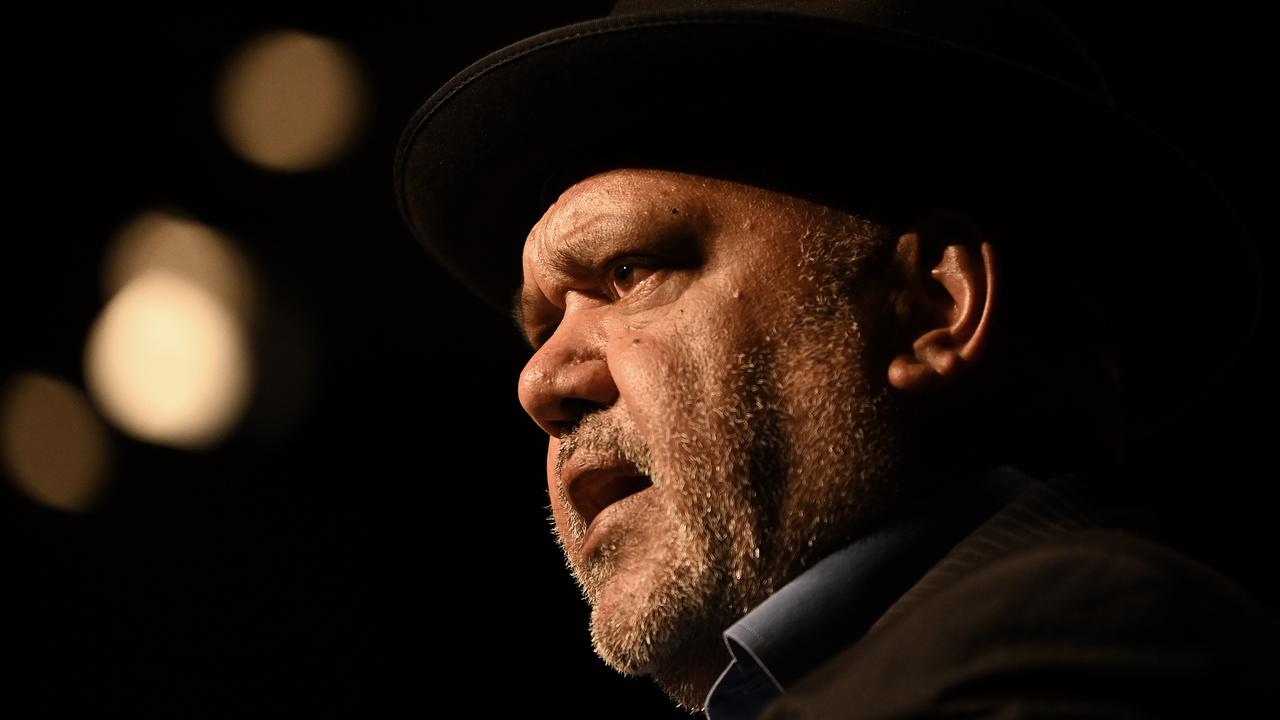
Mr Pearson accused Mr Dutton of “playing politics” with Indigenous lives, saying the Coalition had had more than a decade in government to recognise Aboriginal and Torres Strait Islander people in the Constitution and had done nothing.
“They’ve had 11 years of power to work on a proper proposal for recognition, and the decision they’ve taken is a very poor outcome of 11 years of power,” he said.
“I think that it is a very sad day for Australia that we can’t have bipartisanship in this important national enterprise.”
Anthony Albanese backed Mr Pearson, repeating his position that the Uluru Statement was a “generous” invitation to everyone in the country to “walk with First Australians to advance reconciliation”.
“This is an issue that should be above politics,” the Prime Minister said.
“Peter Dutton will have one vote. I will have one vote – but so will every Australian.”
In a statement, Senator Dodson said he would be absent from parliament “for the next few months”.
“I want to thank all those who have wished me well, and ask that my privacy please be respected.”
Senator Dodson said he was mindful that during this time he had a big workload planned in his role as Special Envoy for Reconciliation and Implementation of the Uluru Statement from the Heart in the lead-up to the referendum.
“Every member of this government is privileged to count the Father of Reconciliation as a colleague and a powerful source of wisdom and inspiration,” Mr Albanese wrote on Twitter
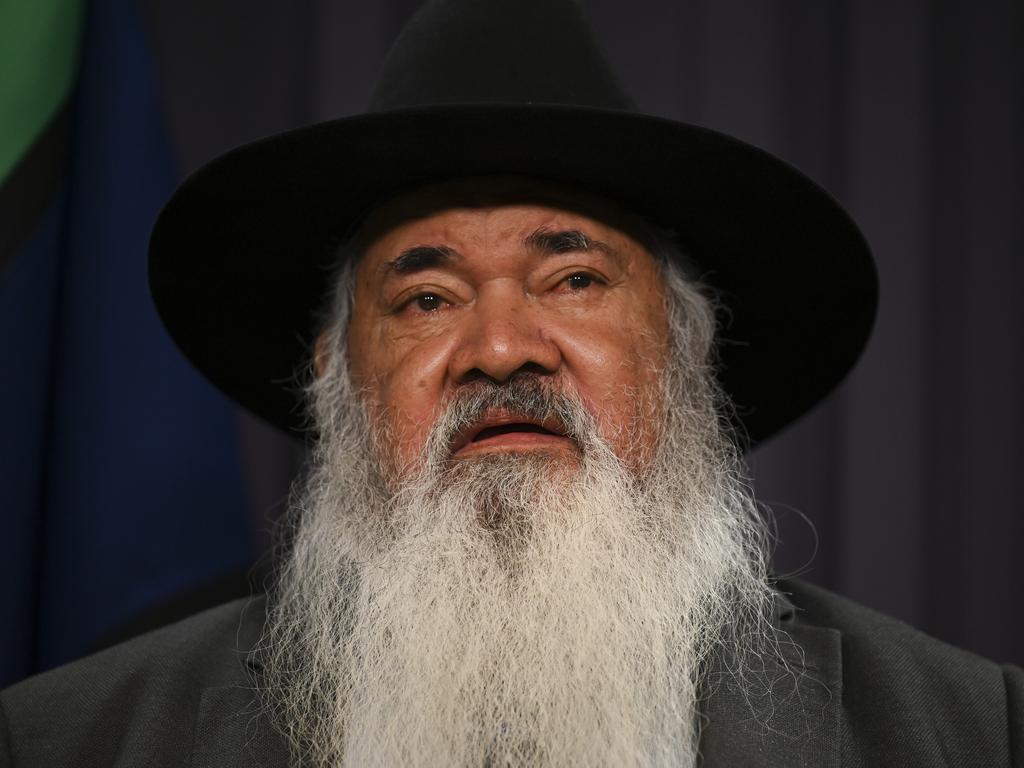
While Liberal frontbenchers will be tied to the party’s position of opposing the Voice, backbenchers will be allowed to vote with their conscience on the matter.
Liberal backbencher and Hughes MP Jenny Ware told Sky News on Thursday she was concerned about the government’s proposed Voice model but promised to consult widely with her electorate before making a final decision.
Ms Ware also became the second Liberal to apparently confuse the party’s position on the voice, saying the Liberals supported a “nationally legislated Voice to the federal parliament”.
It’s understood the party only supports legislating local and regional Voices and Mr Dutton has made no mention of supporting a national voice this week.
Opposition communications spokesman Paul Fletcher — who has to oppose the Voice as a member of shadow cabinet — said he supported the party’s position and would prosecute it.
“It falls to all of us as Liberal parliamentarians, and certainly members of shadow cabinet, to be making the case for our policies,” he told ABC TV.
“I’ll be making my judgment based upon all of the considerations and information that becomes available.”
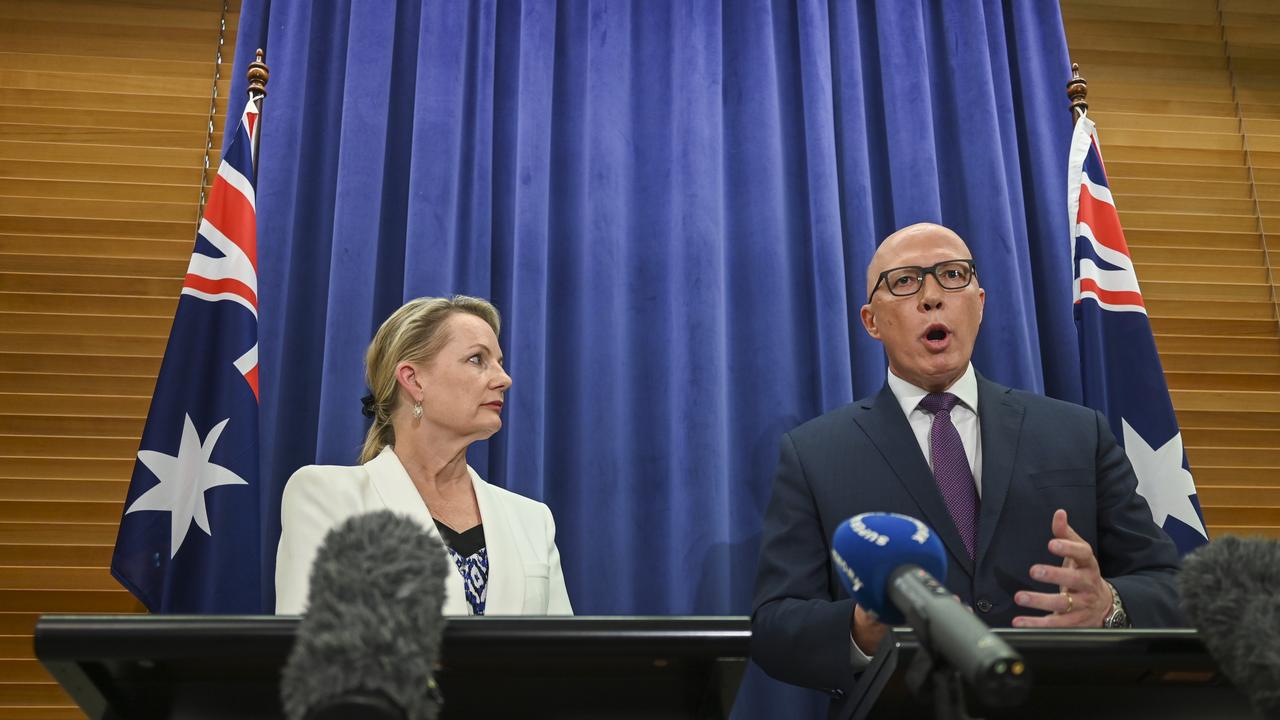
Key moderates Andrew Bragg and Bridget Archer were quick to break ranks to signal their support for the Voice after the party room meeting on Wednesday.
Ms Archer, an outspoken Tasmanian MP who has crossed the floor to vote with Labor in the past, went a step further on Thursday, telling ABC Radio she had considered quitting the Liberal Party.
“I stay because I think the Liberal Party is at a crossroads,” she told ABC Radio.
“And for people like me, that means there is a decision between either walking away and leaving them to it – or fighting for what I believe the Liberal Party used to be and should be into the future – a credible, alternative government.”
Tasmanian Premier Jeremy Rockliff — the only Liberal leader left in government in Australia — has also broken ranks with his federal counterparts and said he would vigorously campaign for a “yes” vote.
With other opposition leaders across the country saying they are open minded on the Voice, Mr Dutton on Thursday tried to hose down suggestions he couldn’t unite the Liberals.
“In our party, we believe in the individual and their ability to express their view,” Mr Dutton told Sunrise.
“There would be 99 per cent of our members in Canberra who support our position. The vast majority … are absolutely clear and adamant that they want better outcomes for Indigenous Australians.
“We don’t want to disrupt the system of government and democracy we have.”
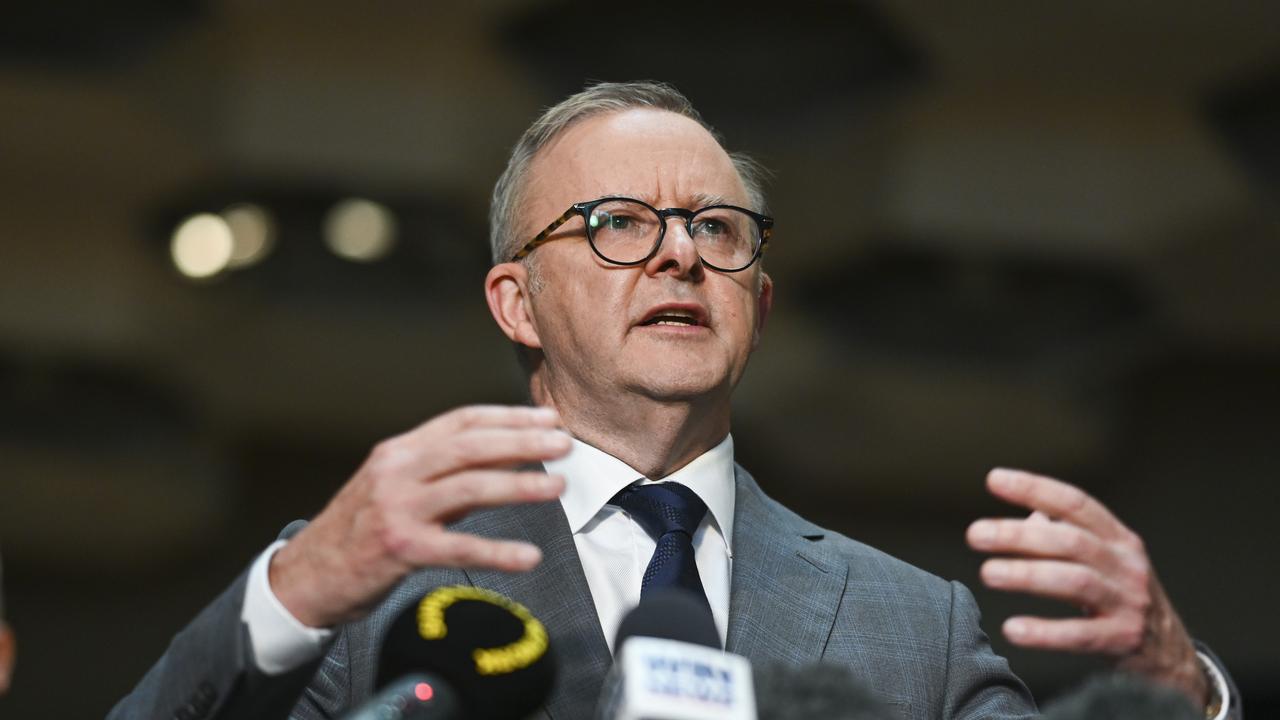
Parliament will vote on legislation to finalise the wording of the referendum on the Voice and the proposed constitutional change in June.
The Constitution Alteration Bill is being reviewed by a bipartisan committee that is due to report back by mid-May.
No referendum has ever succeeded without bipartisan support.
Leading moderate Simon Birmingham — who will also be bound to the party’s position as a frontbencher — claimed the Liberals had left the door open to bipartisanship.
“There was a strong commitment out of yesterday for bipartisan support for constitutional recognition of Indigenous Australians,” he told ABC News on Thursday.
“There is still the parliamentary committee process … I hope through that, perhaps there can still be a means of salvaging something that can provide for the country – a unifying and bipartisan moment but also something that is achieved without risks or concerns to the constitution and operation of government.”
He said the Liberals would be open to further discussions with the government, particularly around removing the words “executive government” from the proposed constitutional amendment.
Giving the Voice the ability to advise federal cabinet has been contentious among some conservatives and lawyers who are concerned it could lead to legal challenges in the High Court.



